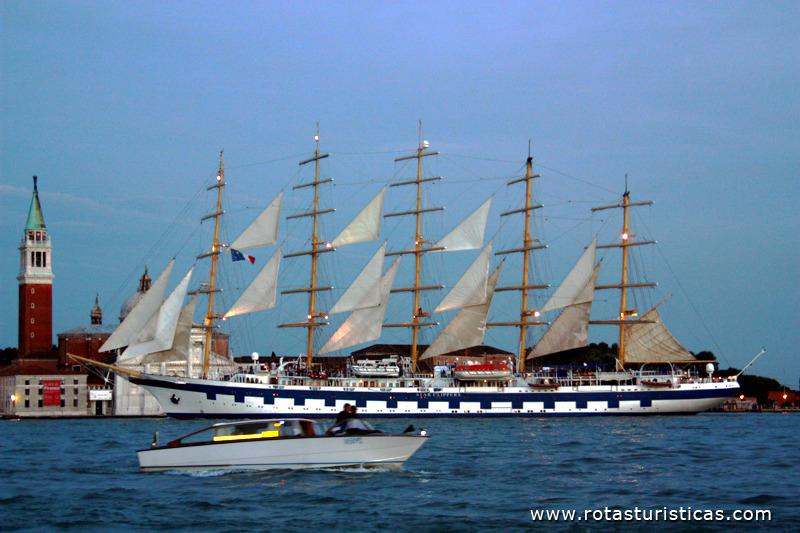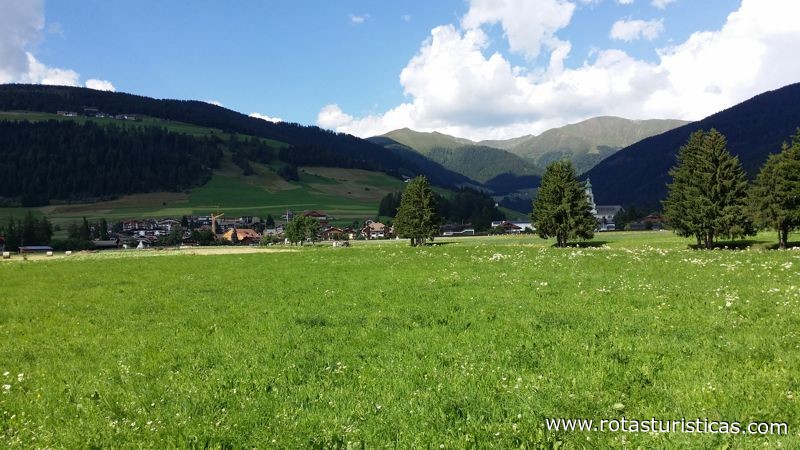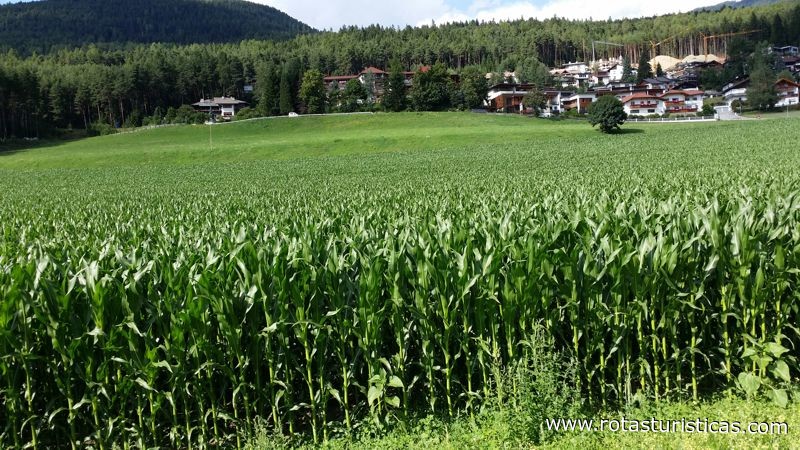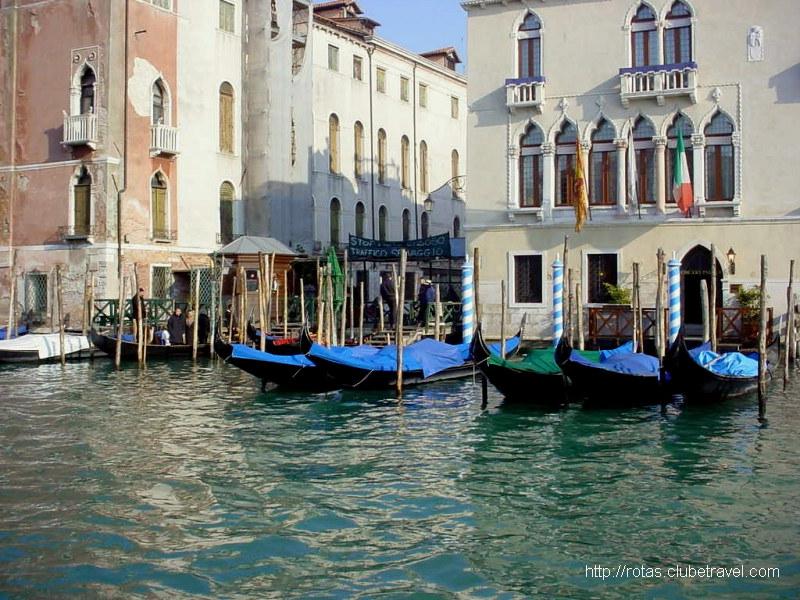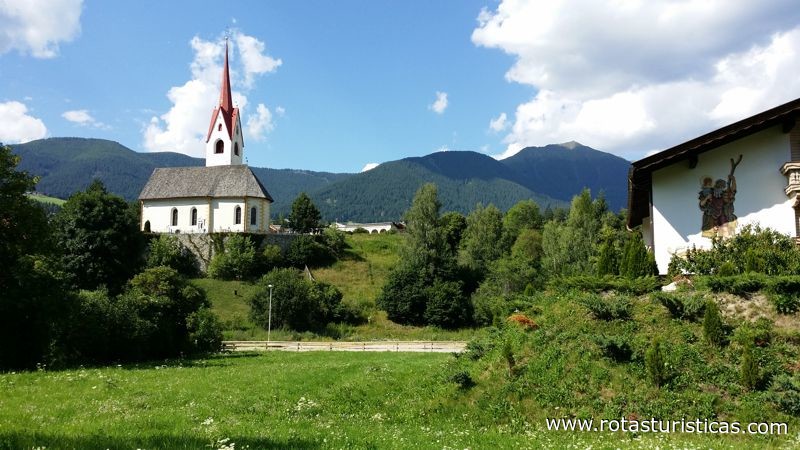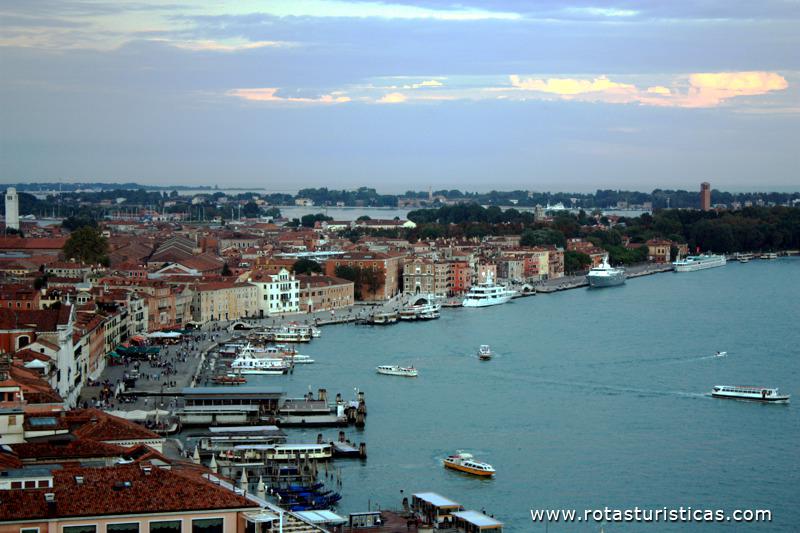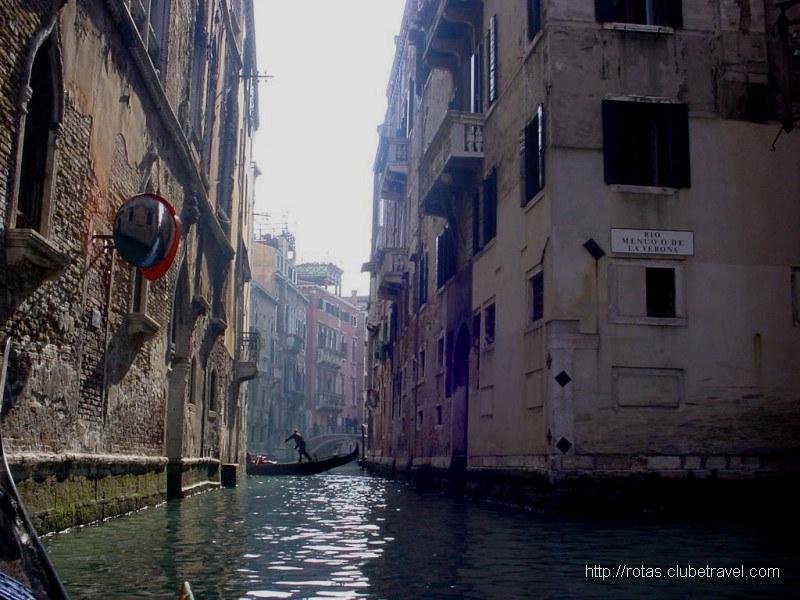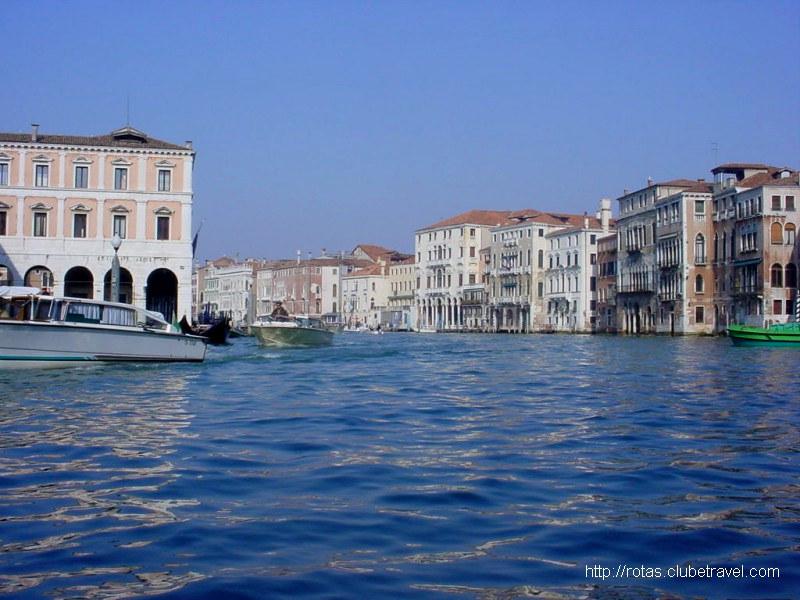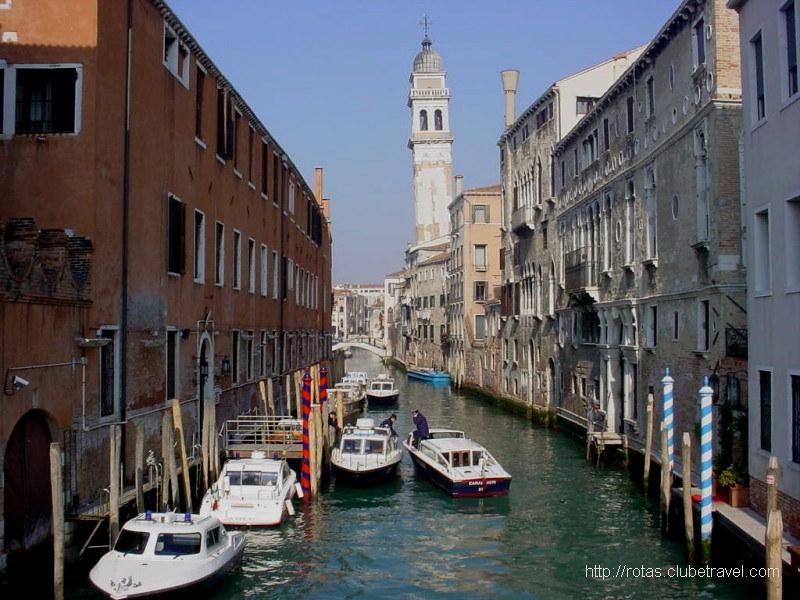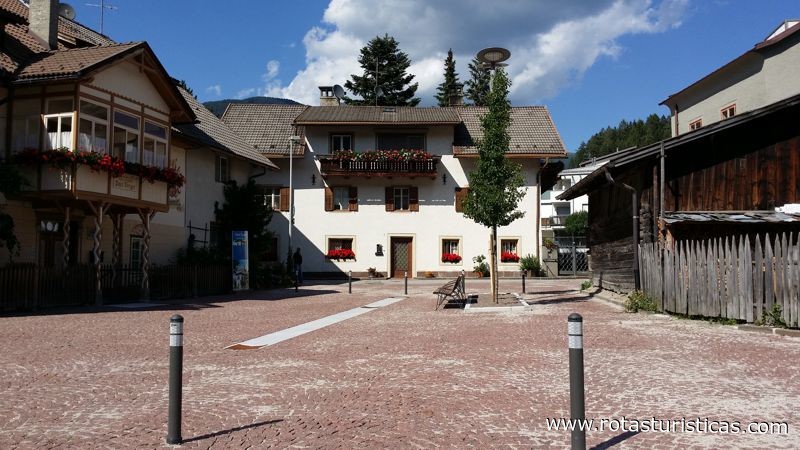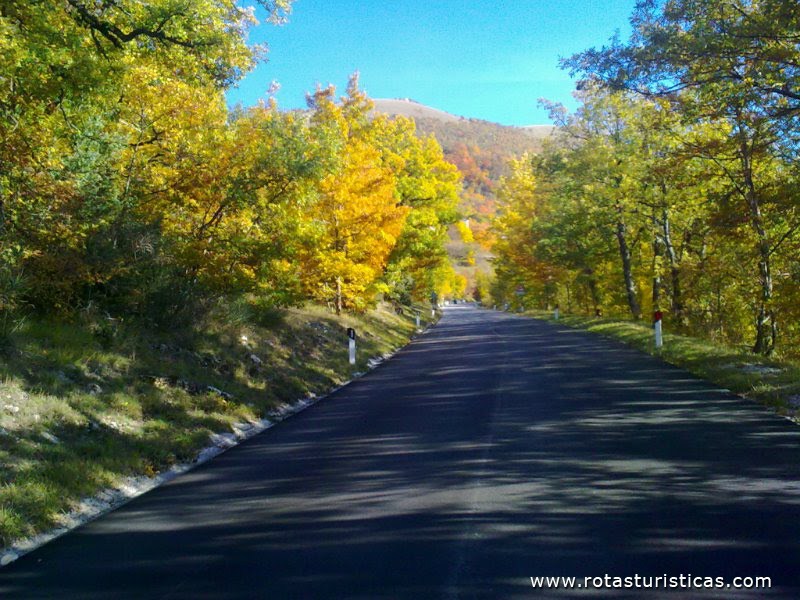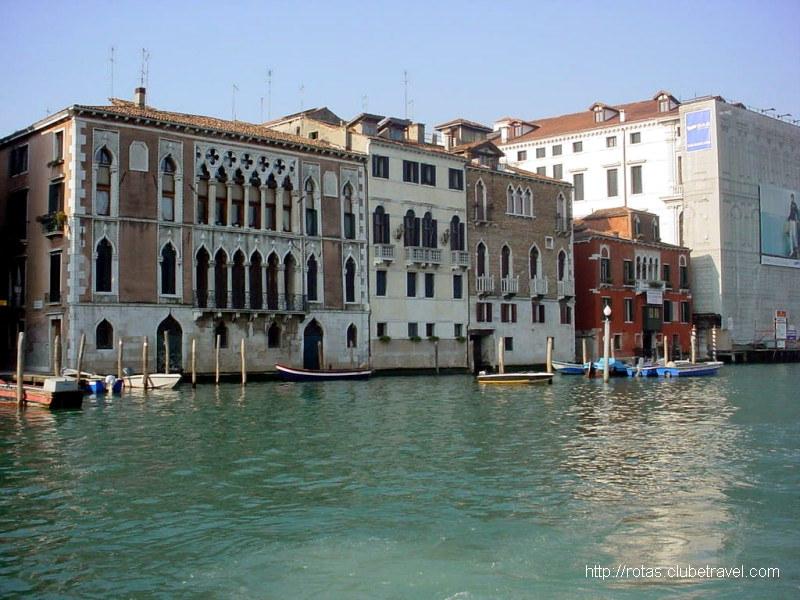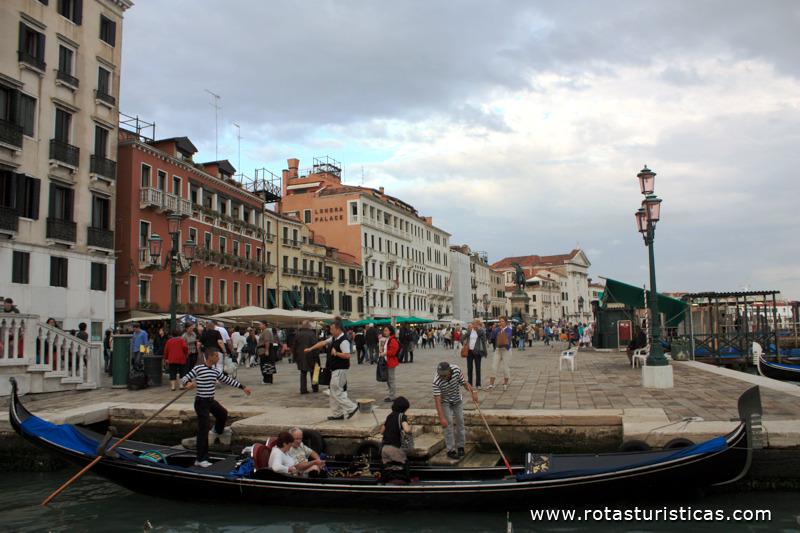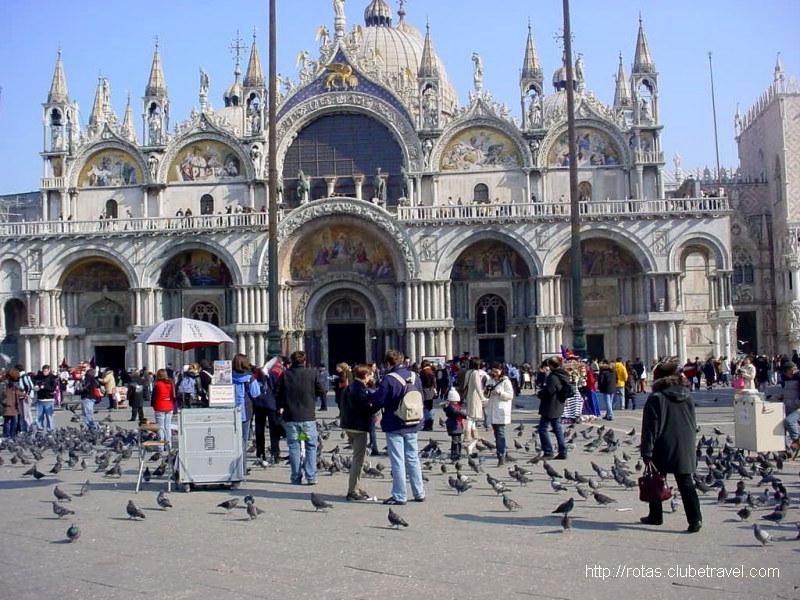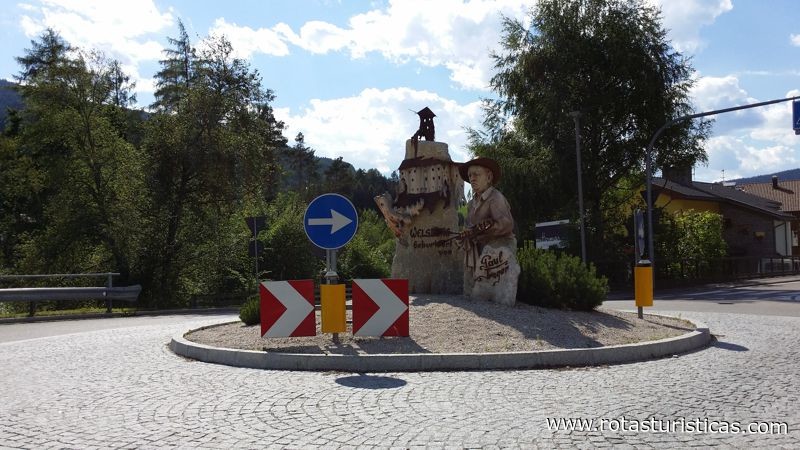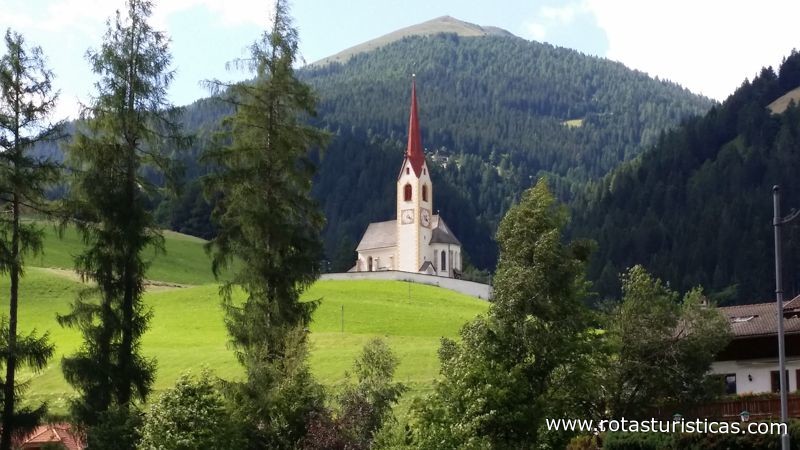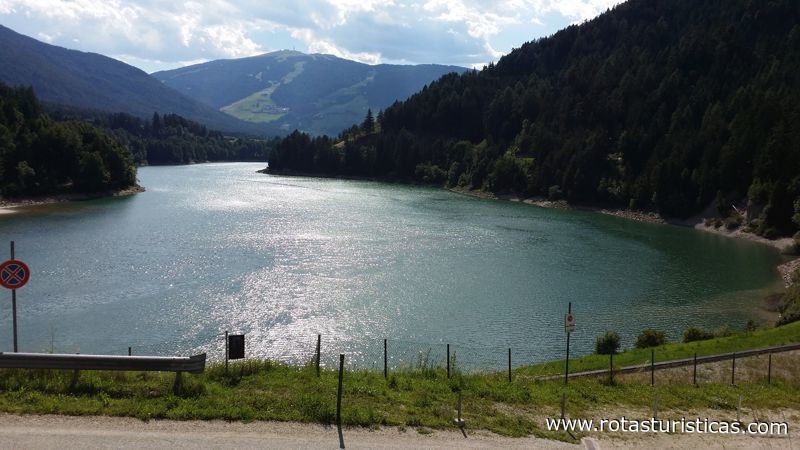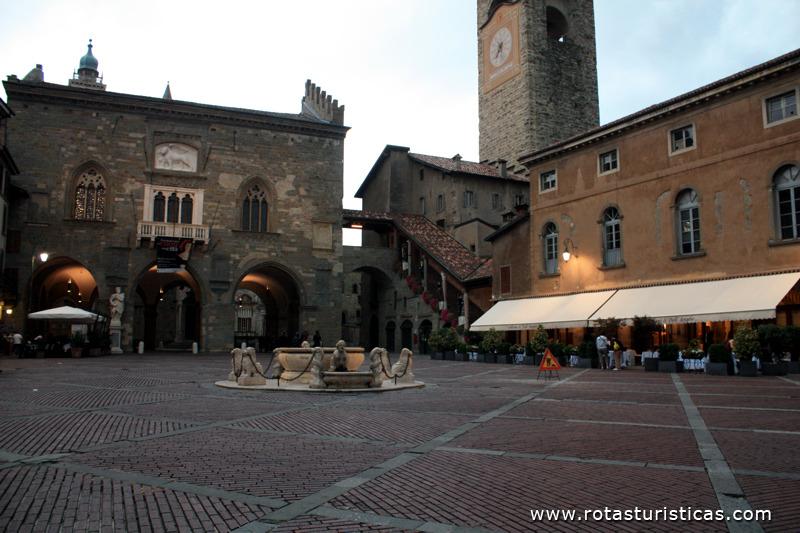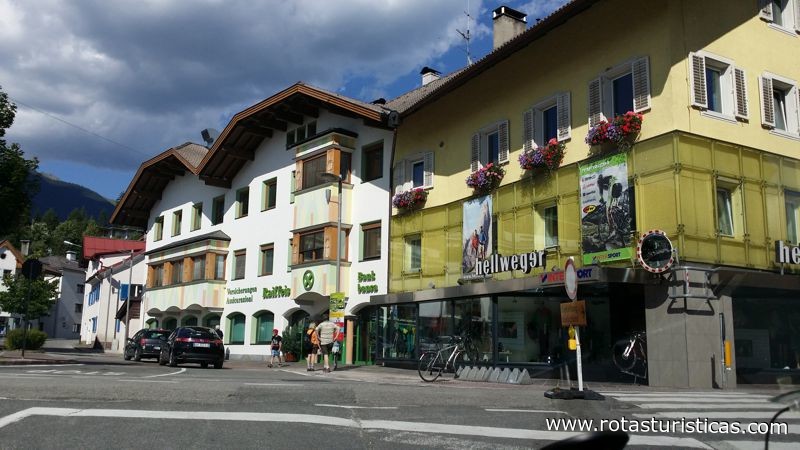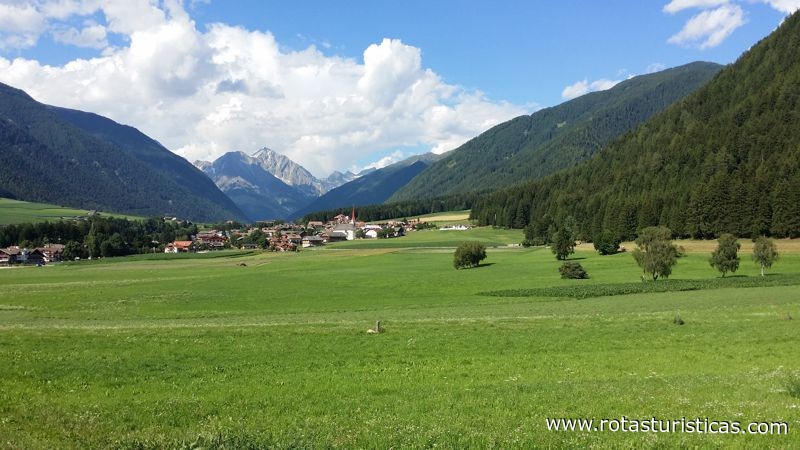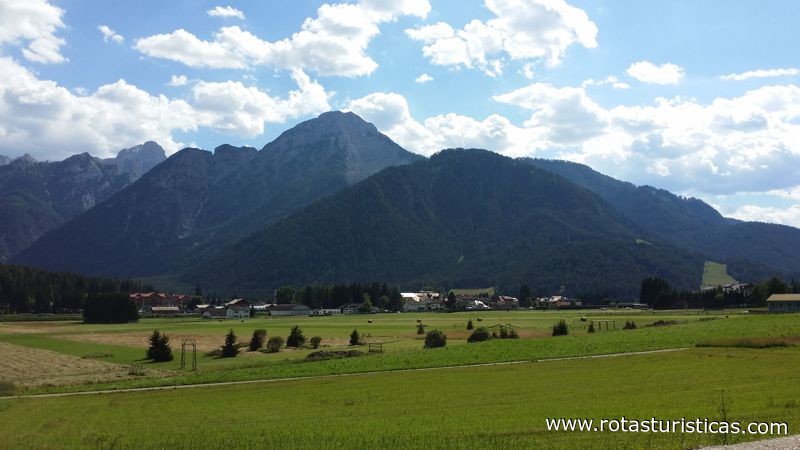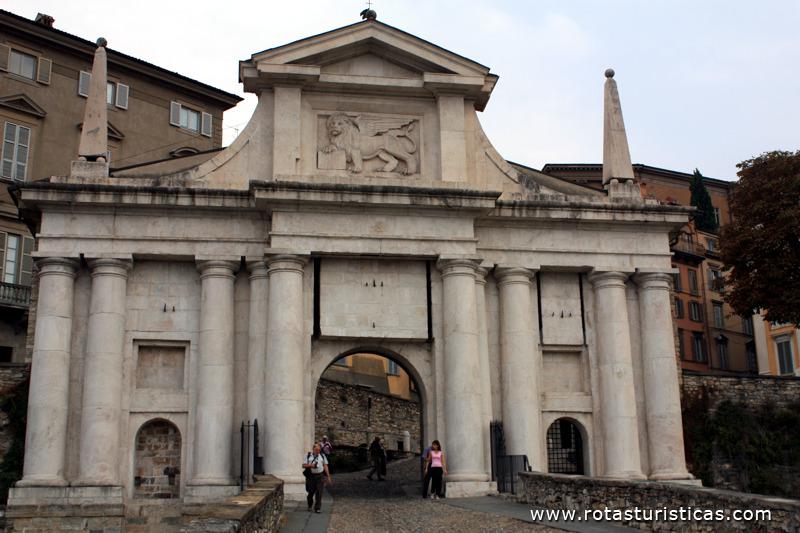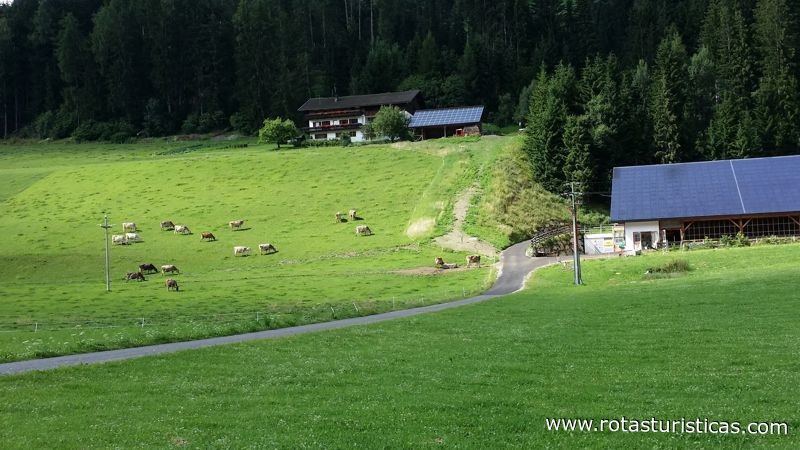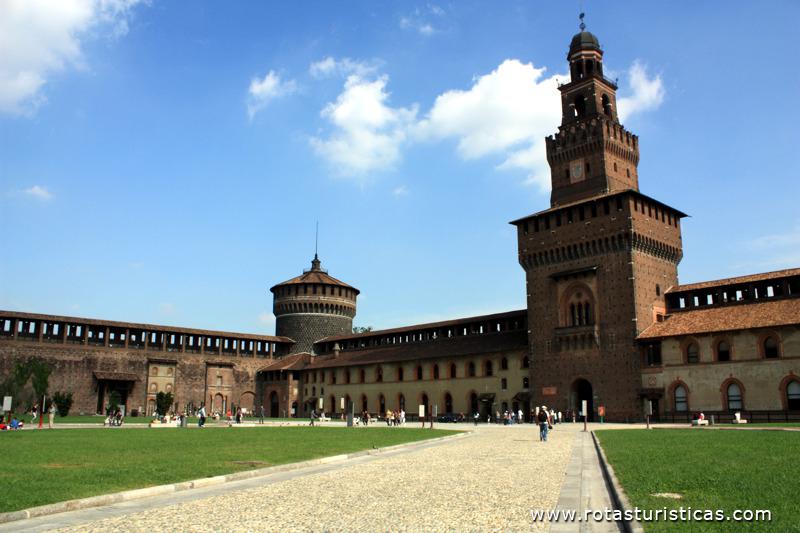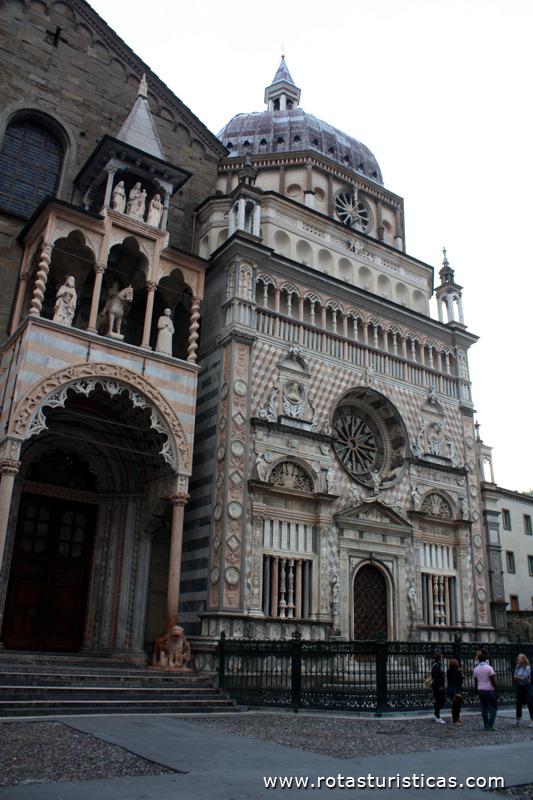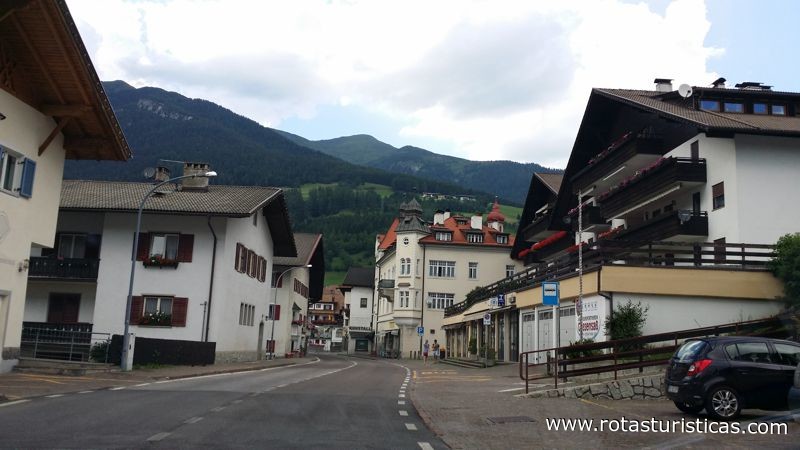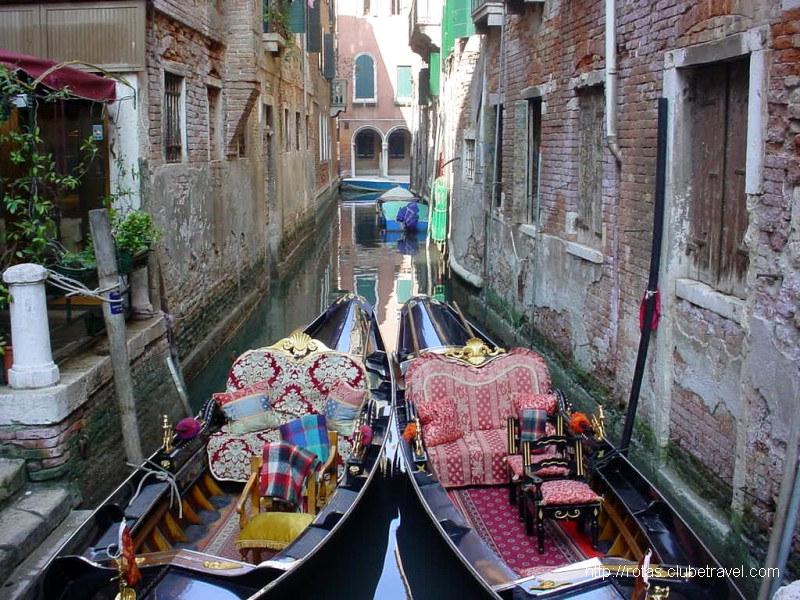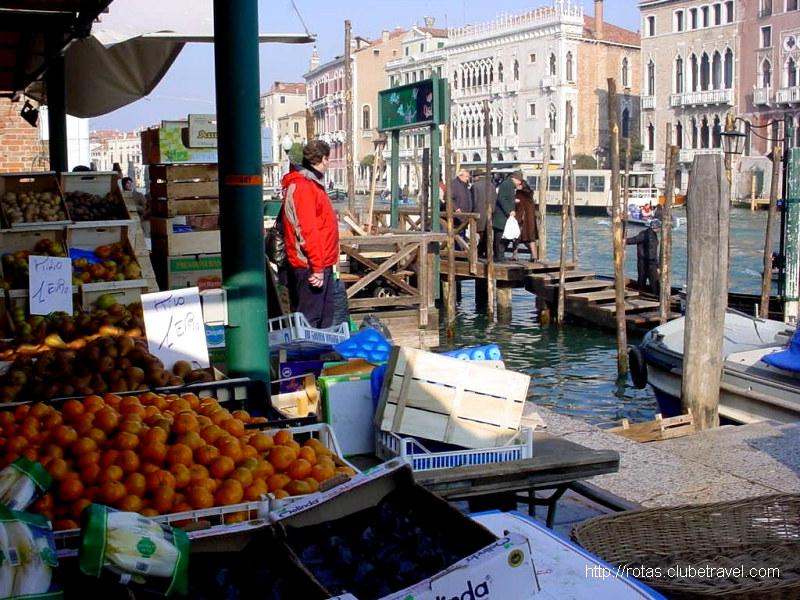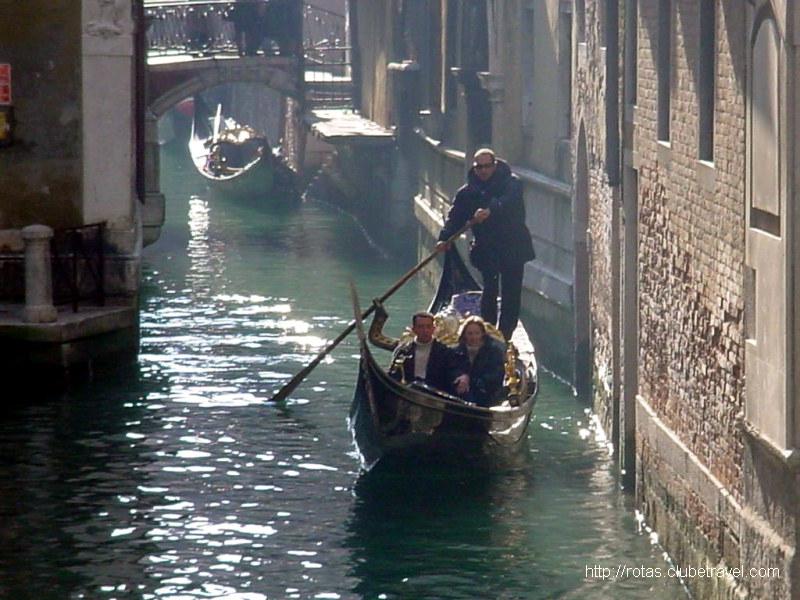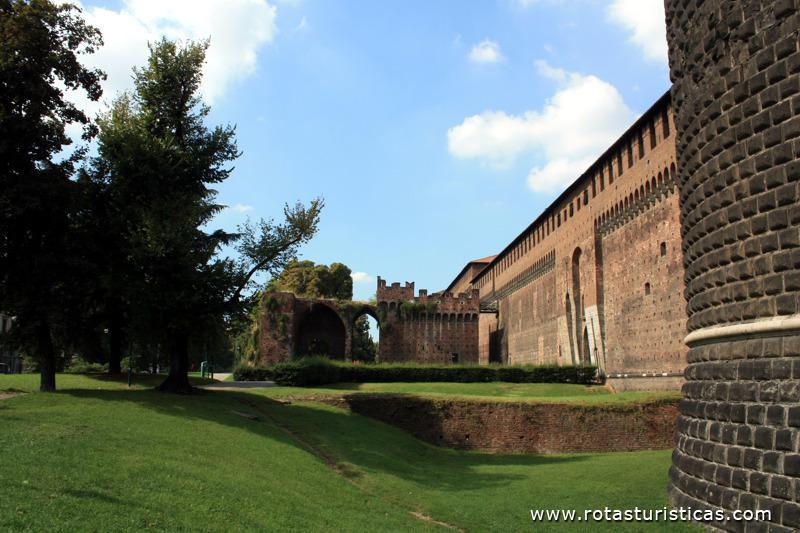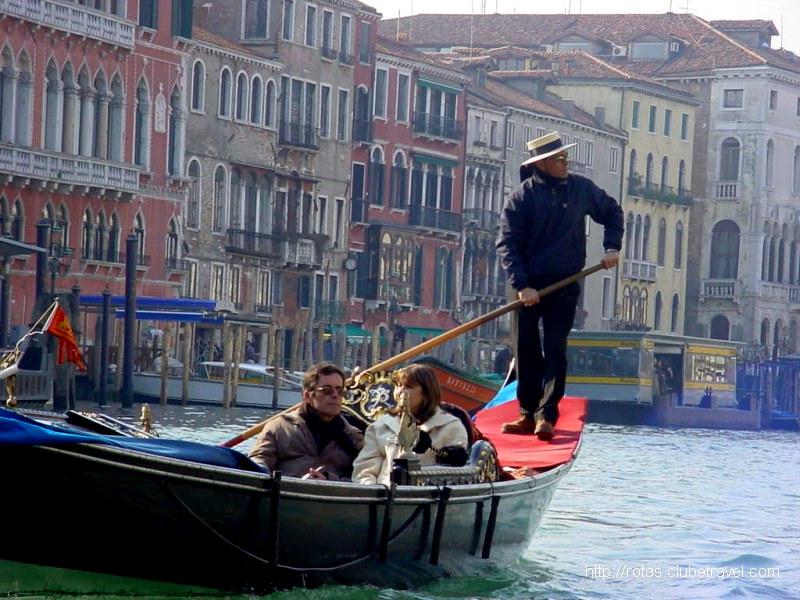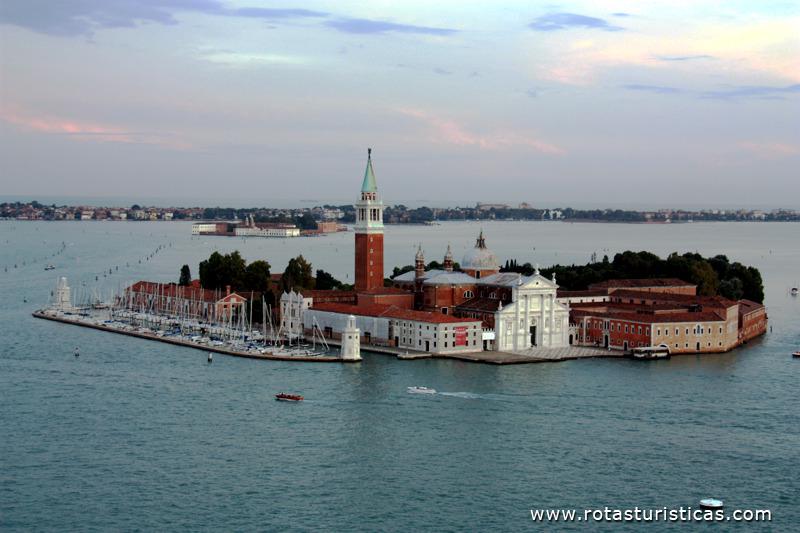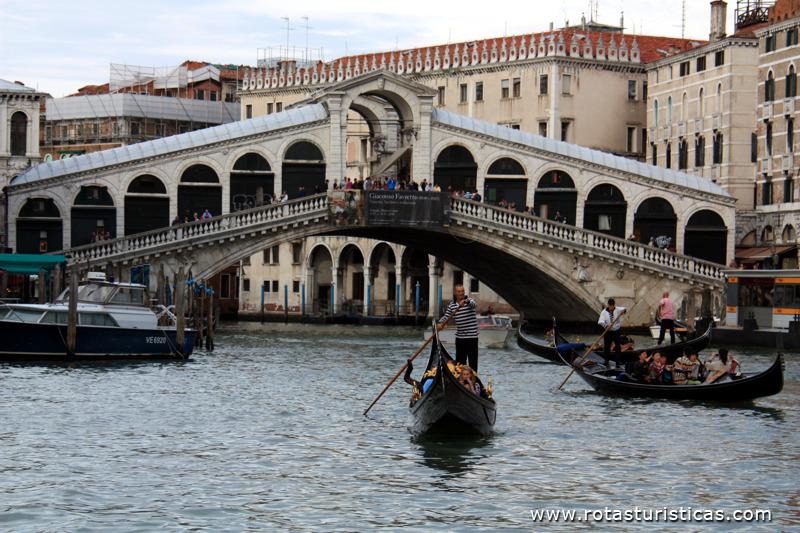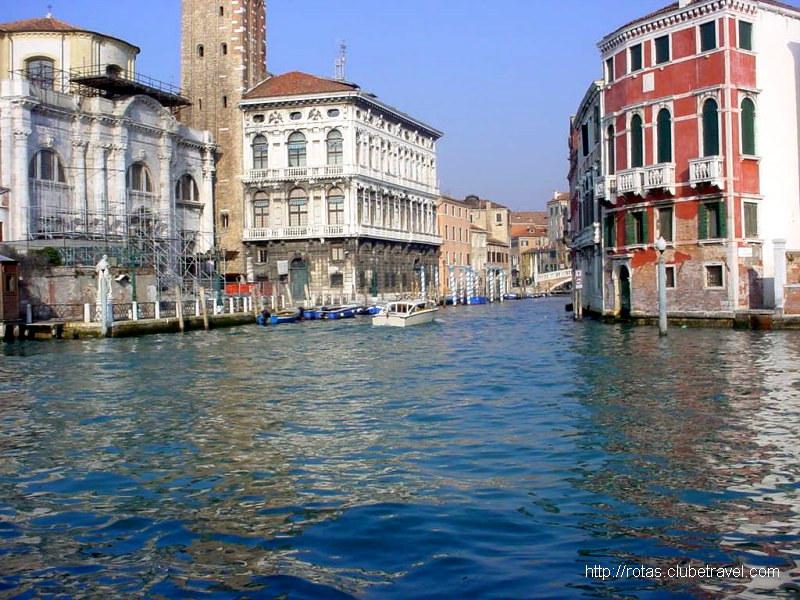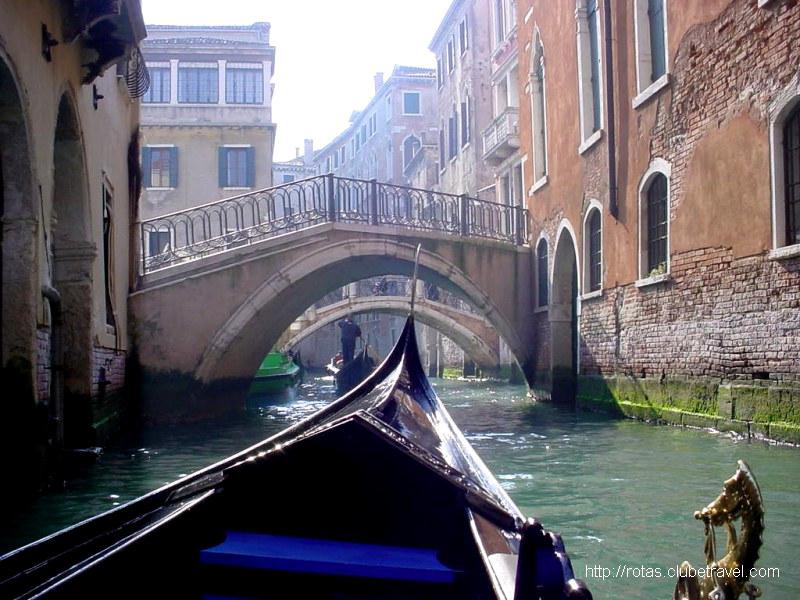Pictures of: Italy
Location map
Airports
Hotels and other Accommodation
Golf Courses
What to visit
Where to Eat
Where to have fun
Consulates & Embassies
World Nomads
The Travel Insurance with the largest coverage

The Travel Insurance with the largest coverage

Italy
Italy is a unitary parliamentary republic located in south-central Europe (southern Europe). To the north it borders France, Switzerland, Austria and Slovenia along the Alps. To the south consists the entirety of the Italica peninsula, Sicily, Sardinia, with the two largest islands in the Mediterranean Sea, and many other smaller islands near Italian territory. The independent states of San Marino and the Vatican are enclaves in the interior of Italy, while Campione d'Italia is an Italian enclave in Switzerland.
Rome, the Italian capital, was for centuries the political and religious center of Western civilization as the capital of the Roman Empire and as the seat of the Holy See. After the decline of the Romans, Italy suffered numerous invasions of foreign peoples, from Germanic tribes, the Lombards and Ostrogoths, the Byzantines, and later the Normans, among others. Centuries later, Italy became the cradle of the maritime republics and the Renaissance, an extremely fruitful intellectual movement that would become an integral part of the subsequent formation of European thought.
Rome, the Italian capital, was for centuries the political and religious center of Western civilization as the capital of the Roman Empire and as the seat of the Holy See. After the decline of the Romans, Italy suffered numerous invasions of foreign peoples, from Germanic tribes, the Lombards and Ostrogoths, the Byzantines, and later the Normans, among others. Centuries later, Italy became the cradle of the maritime republics and the Renaissance, an extremely fruitful intellectual movement that would become an integral part of the subsequent formation of European thought.
Official language
Italian
Currency
Euro
Documentation
The necessary documentation for travel to Italy varies according to the country of origin.
For citizens of the European Union, and some others, just have a valid passport or photo ID.
If you are from another country than the above, the maximum stay in Italy is 90 days.
There are countries whose citizens are required to have a valid tourist visa in order to enter Italy.
Citizens of those countries may also travel to Italy if they have a residence permit or a long-stay visa issued by another EU country (with the exception of the United Kingdom, Ireland, Romania, Bulgaria and Cyprus), Switzerland, Norway, Iceland and Lichtenstein.
Citizens of all other countries must be in possession of documents justifying the purpose and conditions of their stay, as well as sufficient financial resources for their stay during the period they intend to remain in Italy.
The documents that are needed to present vary according to the reason for the trip.
Taking into account the various conditions necessary for entry into Italy, it is suggested that you contact the Italian Embassy or Consulate in the visitor's country of residence to check these requirements before starting your journey.
For citizens of the European Union, and some others, just have a valid passport or photo ID.
If you are from another country than the above, the maximum stay in Italy is 90 days.
There are countries whose citizens are required to have a valid tourist visa in order to enter Italy.
Citizens of those countries may also travel to Italy if they have a residence permit or a long-stay visa issued by another EU country (with the exception of the United Kingdom, Ireland, Romania, Bulgaria and Cyprus), Switzerland, Norway, Iceland and Lichtenstein.
Citizens of all other countries must be in possession of documents justifying the purpose and conditions of their stay, as well as sufficient financial resources for their stay during the period they intend to remain in Italy.
The documents that are needed to present vary according to the reason for the trip.
Taking into account the various conditions necessary for entry into Italy, it is suggested that you contact the Italian Embassy or Consulate in the visitor's country of residence to check these requirements before starting your journey.
Tourism
Italy, one of the main tourist destinations on the planet, bringing together a record number of one hundred thousand historical monuments and unique natural features, covering an arch from the eternal snow of the Alps to the torrid Mediterranean island beaches.
All of Italy, and especially Rome, which houses the Vatican, receives more than 10 million people a year.
Another place of strong tourist attraction is Venice, with its canals and gondolas, next to the Mediterranean beaches and the ski resorts in the Alps.
Food and football are two of Italy's favorite programs. In the whole country, a lot of time is spent preparing and enjoying meals. The Italian football championship, in turn, is one of the best in the world, bringing together players from different countries.
The history of Italy is marked by achievements that have led to the spread of Latin language and culture throughout the world. In antiquity, the region was the cradle of the mighty Roman Empire.
Classical antiquity has left monuments to this day, and the Renaissance, from the 15th century, has transformed the country into a major scientific and cultural center.
There are so many varieties of things, the artistic treasures of each epoch, in this Country, that we can truly consider an outdoor art gallery.
Every age there finds invaluable testimonies. In hundreds of archaeological sites, in more than 3000 museums scattered throughout Italy, are preserved and protected, so that tourists, visitors and scholars can admire and study them, large and small pieces from distant centuries. Theaters and other buildings from Greek and Roman times; cities, roads, and entire neighborhoods, once under the earth and now returned to light by patient and skillful excavations; temples, statues, coins, inscriptions, objects of daily use; Italy is extraordinarily rich in memories of its more remote past.
Leonardo da Vinci, Michelangelo Buonarroti, Masaccio, Botticelli, Piero della Francesca, Donatello, Raphael, Antonello da Messina, Bramante, Correggio, Tintoretto, Giorgione: names of artists (sculptors, painters, architects) who have become legendary universally known as expressions of the artistic genius of all time.
His works are the continuous goal of admired and astonished visitors, students and scholars eager to understand the secrets of that magnificent art, unsurpassed in its greater expressions. It is the art of the Renaissance, the great cultural movement begun in Italy in the fifteenth century, which profoundly influenced the history of European and not only Italian culture and civilization.
All of Italy, and especially Rome, which houses the Vatican, receives more than 10 million people a year.
Another place of strong tourist attraction is Venice, with its canals and gondolas, next to the Mediterranean beaches and the ski resorts in the Alps.
Food and football are two of Italy's favorite programs. In the whole country, a lot of time is spent preparing and enjoying meals. The Italian football championship, in turn, is one of the best in the world, bringing together players from different countries.
The history of Italy is marked by achievements that have led to the spread of Latin language and culture throughout the world. In antiquity, the region was the cradle of the mighty Roman Empire.
Classical antiquity has left monuments to this day, and the Renaissance, from the 15th century, has transformed the country into a major scientific and cultural center.
There are so many varieties of things, the artistic treasures of each epoch, in this Country, that we can truly consider an outdoor art gallery.
Every age there finds invaluable testimonies. In hundreds of archaeological sites, in more than 3000 museums scattered throughout Italy, are preserved and protected, so that tourists, visitors and scholars can admire and study them, large and small pieces from distant centuries. Theaters and other buildings from Greek and Roman times; cities, roads, and entire neighborhoods, once under the earth and now returned to light by patient and skillful excavations; temples, statues, coins, inscriptions, objects of daily use; Italy is extraordinarily rich in memories of its more remote past.
Leonardo da Vinci, Michelangelo Buonarroti, Masaccio, Botticelli, Piero della Francesca, Donatello, Raphael, Antonello da Messina, Bramante, Correggio, Tintoretto, Giorgione: names of artists (sculptors, painters, architects) who have become legendary universally known as expressions of the artistic genius of all time.
His works are the continuous goal of admired and astonished visitors, students and scholars eager to understand the secrets of that magnificent art, unsurpassed in its greater expressions. It is the art of the Renaissance, the great cultural movement begun in Italy in the fifteenth century, which profoundly influenced the history of European and not only Italian culture and civilization.
Gastronomy
Italian cuisine has evolved over the centuries, over a wide range of social and political changes; its roots can be traced back to the fourth century BC Significant changes occurred with the discovery of the New World, which helped shape much of what is now known as Italian cuisine through the introduction of ingredients such as potatoes, tomatoes, peppers and maize, all of them central to the country's cuisine, but which were nevertheless only introduced on a large scale from the eighteenth century. It is one of the most popular cuisines in the world.
Both ingredients and dishes change from region to region of the country. There are several important regional dishes that have also assumed national character, while several dishes have proliferated, in several variants, all over the world. Cheese and wine are a very important part of the country's cuisine, playing different roles both regionally and nationally, with its innumerable varieties and laws of regulation (Denominazione di origine controllata, DOC). Also coffee, more specifically espresso, has assumed a prominent role in the gastronomic culture of Italy.
Both ingredients and dishes change from region to region of the country. There are several important regional dishes that have also assumed national character, while several dishes have proliferated, in several variants, all over the world. Cheese and wine are a very important part of the country's cuisine, playing different roles both regionally and nationally, with its innumerable varieties and laws of regulation (Denominazione di origine controllata, DOC). Also coffee, more specifically espresso, has assumed a prominent role in the gastronomic culture of Italy.
Weather
The climate of Italy can vary from region to region. The Italian north (Milan, Turin and Bologna) has a continental climate, when the south of Florence is the Mediterranean climate. The climate of the peninsula's coastal areas is very different from the interior, particularly in the winter months.
The higher areas are cold, humid and often receive snowfall. The coastal regions have a typical Mediterranean climate with mild winters and hot, usually dry summers. The alpine region is marked by a cold mountain climate, with harsh winters and mild summers. Stelvio, for example, has averages of -12 ° C in winter and +5 ° C in summer. There are notable differences in temperatures, especially during winter: on certain days of December or January it can snow in Milan with -2 ° C, when in Palermo or Naples temperatures are + 5 ° C. On certain mornings Turin can dawn with -10 ° C, while at the same time Rome meets +0 ° C and Reggio Calabria at +6 ° C. In summer the difference is clearer, the east coast is not as wet as the west coast, but in winter it is generally colder. In the winter months the Apennines receive snow regularly.
Snow in the town of Pavia.
Italy is subject to highly diversified conditions in autumn, winter, spring, and even in summer when northern cities such as Turin, Milan, Pavia, Verona or Udine can be rained during the day. South of Florence, summer is typically dry and sunny. Between November and March the Pó river valley is often covered by snow, especially the central zone (Pavia and Cremona). Snow is something quite common between December and February in cities like Turin, Milan and Bologna, in the winters of 2005 - 2006, Milan received approximately 70/80 cm of snow, Pavia 50 cm, Trento 160 cm, Vicenza around 45 cm , Bologna around 30 cm and Piacenza around 80 cm. Generally the hottest month, is August in the south, and July in the north, in those months the thermometers can mark 42 ° C in the south and 33 ° C in the north. The coldest month is January, with averages in the Po valley of 0 ° C, Florence 5 ° C / 6 ° C, Rome 7 ° C / 8 ° C. Minimum temperatures can reach -14 ° C in the Po valley, -5 ° C / -6 ° C in Florence, -4 ° C in Rome, -2 ° in Naples and Palermo can reach 1 ° C.
The higher areas are cold, humid and often receive snowfall. The coastal regions have a typical Mediterranean climate with mild winters and hot, usually dry summers. The alpine region is marked by a cold mountain climate, with harsh winters and mild summers. Stelvio, for example, has averages of -12 ° C in winter and +5 ° C in summer. There are notable differences in temperatures, especially during winter: on certain days of December or January it can snow in Milan with -2 ° C, when in Palermo or Naples temperatures are + 5 ° C. On certain mornings Turin can dawn with -10 ° C, while at the same time Rome meets +0 ° C and Reggio Calabria at +6 ° C. In summer the difference is clearer, the east coast is not as wet as the west coast, but in winter it is generally colder. In the winter months the Apennines receive snow regularly.
Snow in the town of Pavia.
Italy is subject to highly diversified conditions in autumn, winter, spring, and even in summer when northern cities such as Turin, Milan, Pavia, Verona or Udine can be rained during the day. South of Florence, summer is typically dry and sunny. Between November and March the Pó river valley is often covered by snow, especially the central zone (Pavia and Cremona). Snow is something quite common between December and February in cities like Turin, Milan and Bologna, in the winters of 2005 - 2006, Milan received approximately 70/80 cm of snow, Pavia 50 cm, Trento 160 cm, Vicenza around 45 cm , Bologna around 30 cm and Piacenza around 80 cm. Generally the hottest month, is August in the south, and July in the north, in those months the thermometers can mark 42 ° C in the south and 33 ° C in the north. The coldest month is January, with averages in the Po valley of 0 ° C, Florence 5 ° C / 6 ° C, Rome 7 ° C / 8 ° C. Minimum temperatures can reach -14 ° C in the Po valley, -5 ° C / -6 ° C in Florence, -4 ° C in Rome, -2 ° in Naples and Palermo can reach 1 ° C.
Safety
Although crime levels are low, attention should be paid to public transport and areas where large crowds are found or crowded, as robberies, tug-of-war, handbags or suitcases are very common. Special care is recommended at the main train stations: Termini Station in Rome, Central Station of Milan, Station of Santa Maria Novella in Florence, and Central Station of Naples, as well as in the means of public transport and in the tourist places of greater affluence of visitors, including bus stops, restaurants, cafés and terraces. For the same reason, no suitcases or handbags should be left unattended, and tourists should take precautions to avoid theft by protecting passports, credit cards, travel tickets and money as much as possible, while carrying with them the strictly necessary for each day of the stay, leaving the rest in safety in the safes of the hotels. Special attention should be paid to groups of young people who, on the pretext of helping or asking for money, try to distract with the aim of stealing.
There are frequent car break-ins in car parks or service stations on motorways, especially on the Naples-Salerno motorway. Cars should always be locked, not leaving themselves any objects, especially if in sight, even for a short time.
In the event of theft, a complaint must be lodged at a police station (carabinieri = Guarda Nacional Republica or Polizia).
There are frequent car break-ins in car parks or service stations on motorways, especially on the Naples-Salerno motorway. Cars should always be locked, not leaving themselves any objects, especially if in sight, even for a short time.
In the event of theft, a complaint must be lodged at a police station (carabinieri = Guarda Nacional Republica or Polizia).
Health care
The health conditions in Italy are identical to those of European countries.
The traveler must be a holder of the European Health Insurance Card in order to be able to benefit, on the same terms as Italian nationals, from health care that may be necessary during the stay in the country. Medical repatriation, or the continuation of previously initiated medical treatments, or non-urgent treatment, are not included or covered by such care.
Insurance: It is advisable to carry out travel insurance.
The traveler must be a holder of the European Health Insurance Card in order to be able to benefit, on the same terms as Italian nationals, from health care that may be necessary during the stay in the country. Medical repatriation, or the continuation of previously initiated medical treatments, or non-urgent treatment, are not included or covered by such care.
Insurance: It is advisable to carry out travel insurance.
Telecommunications and Electricity
The use of mobile devices can be used if roaming is enabled, however, paying attention to very high roaming charges.
Internet
The Country is well served by internet services, there are several cybers-cafes with high-speed connections.
In case you have a laptop or notebook, there are numerous cafes that offer the free wi-fi connection.
Electricity
The electricity is 220 Volt 50 Hz and with plugs for two-pin plugs.
It is advisable to have an adapter kit for the sockets.
Internet
The Country is well served by internet services, there are several cybers-cafes with high-speed connections.
In case you have a laptop or notebook, there are numerous cafes that offer the free wi-fi connection.
Electricity
The electricity is 220 Volt 50 Hz and with plugs for two-pin plugs.
It is advisable to have an adapter kit for the sockets.
Other tourist destinations in:
Italy
Italy
Other world tourist destinations
Why to book with CLUBE TRAVEL
The best prices
Our partnerships with the world´s largest operators offer research on the best market prices.
More options
At Rotas Turisticos you can book the hotel, buy the air ticket, book the transfer from the airport to the hotel and vice versa, book the local excursions, rent the car, take travel insurance and consult the places to visit and where to go.
Holiday Tips & Destinations
Hundreds of holiday destinations with all the options that allow you to easily choose the destination that best suits your dream vacation.
CLUBE TRAVEL
Links















